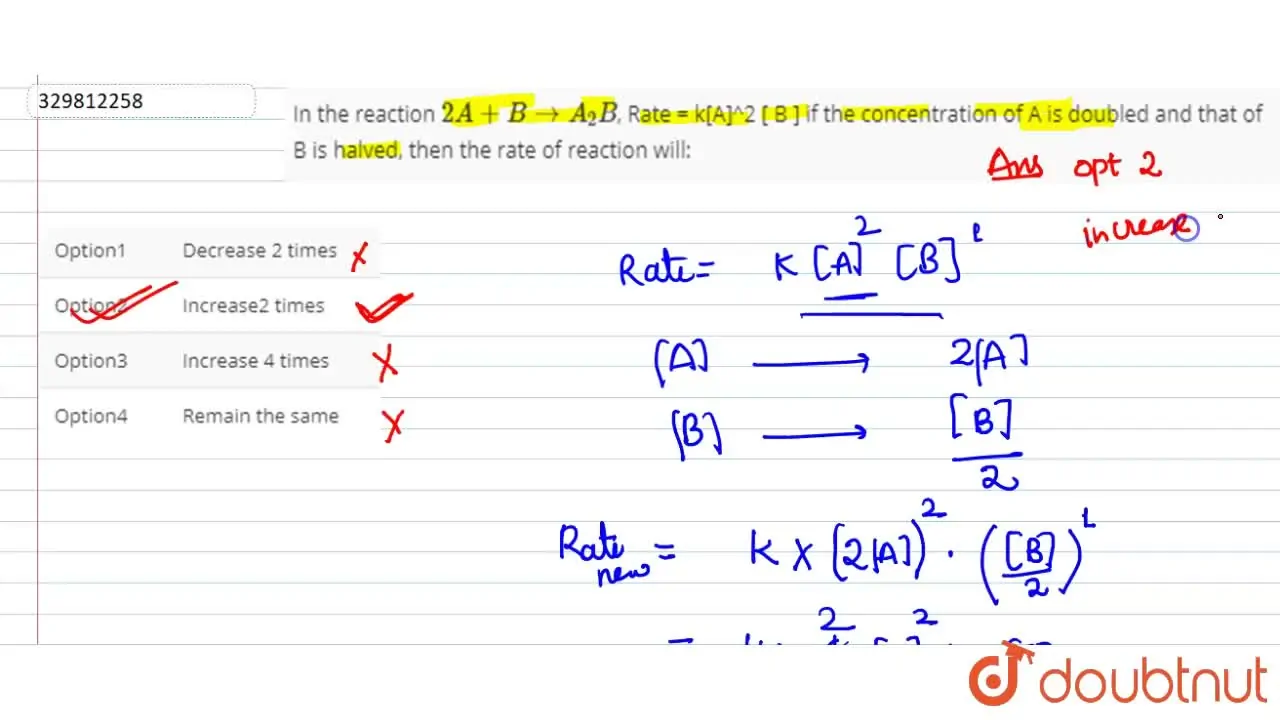In the reaction 2A+B→A2B, Rate = k[A]^2 [ B ] if the concentration of A is doubled and that of B is halved, then the rate of reaction will:
Decrease 2 times
Increase2 times
Increase 4 times
Remain the same
The correct Answer is:B
Step by step video, text & image solution for In the reaction 2A+B to A_2B, Rate = k[A]^2 [ B ] if the concentration of A is doubled and that of B is halved, then the rate of reaction will: by Chemistry experts to help you in doubts & scoring excellent marks in Class 12 exams.
Similar Questions
In the reaction 2A+B→A2B, if the concentration of A is doubled and of B is halved, then the rate of the reaction will:
View SolutionIn the reaction 2A+B→A2B, if the concentration of A is doubled and of B is halved, then the rate of the reaction will:
View SolutionRate law for a recations is r=k[A]2[B]2. If the concentration of A is halved and that of B is doubled , calculate the rate of the reactions.
View SolutionIn the reaction 2A+B→ products the order w.r.t A is found to be one and w.r.t B equal to 2 . Concentration of A is doubled and that of B is halved , the rate of reaction will be
View SolutionIn the reaction 2A + B → Products, the order w.r.t. A is found to be one and w.r.t. B equal to 2. Concentration of A is doubled and that of B is halved, the rate of reaction will be
View SolutionIn a reaction , A+B→C , the rate expression is R = K[A][B]2 . If the concentration of both the reactants is doubled at constant volume then the rate of reaction will be
View SolutionThe rate law for a certain reaction is found to be : Rate = k[A][B]2 How will the rate of this reaction compare if the concentration of A is doubled and the concentration of B is halved ? The rate will :
View SolutionIn the elementary reaction A+B→AB , if the concentration A and B is doubled , the rate of reaction will
View SolutionA + 2B rarr C, the rate equation for this reaction is given as
Rate = k[A] [B].
If the concentration of A is kept the same but that of B is doubled what will happen to the rate itelf?View SolutionA + 2B rarr C, the rate equation for this reaction is given as
Rate = k[A] [B].
If the concentration of A is kept the same but that of B is doubled what will happen to the rate itelf?View Solution


